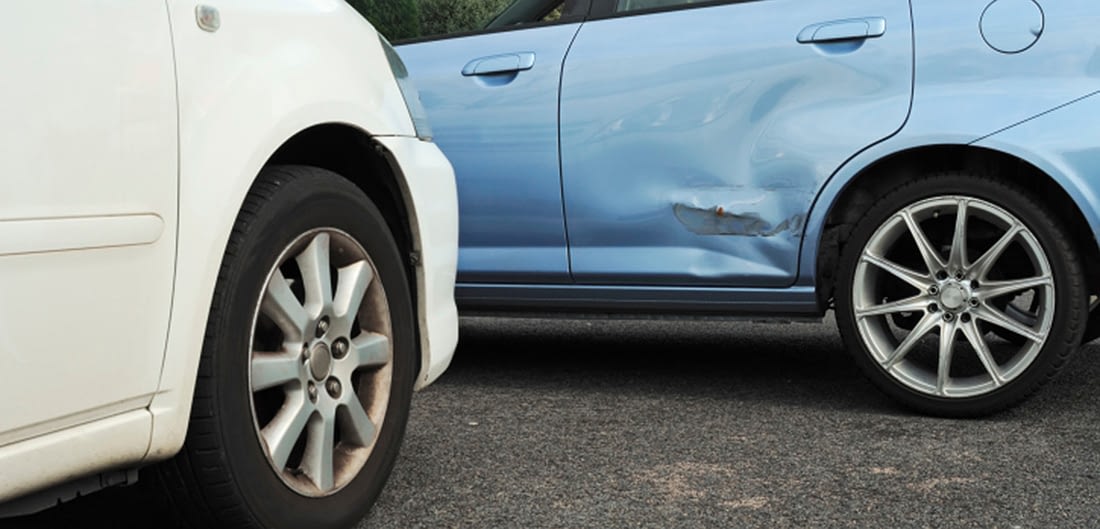Ask ERIE: Whose Insurance Pays When Your Friend Crashes Your Car?

If you own a car, there’s a good chance you’ve let a friend or family member borrow your vehicle every now and then. Maybe they were running a quick errand, their vehicle was in the shop or, perhaps, they were picking up your children from school.
Whatever the reason is, did you know that in the event the person borrowing your car gets into a crash, it’s your auto insurance policy that would usually have to pay?
“In general, it’s OK if a friend or someone else is driving your car and you’ve given them permission to do so,” says Bob Buckel, vice president of personal auto, Erie Insurance. “You’re typically covered if it’s an occasional use situation—for example, they’re going to pick up dinner and you’ve allowed them to use your car.
For the most part, auto insurance typically follows the vehicle rather than the driver. That means your insurance will likely pay if your friend crashes your car.
There are some exceptions, however.
One exception is when the damage and/or injuries exceed the available limits on your policy. In this instance, it’s possible that your friend’s insurance would cover the outstanding balance.
Another exception can occur when someone drives your car without your permission.
For example, imagine a college roommate grabbing the keys to use another roommate’s car.
“This is where it could get confusing,” Buckel says. “Some courts say permission was implied, while others say express permission was necessary. This can vary by jurisdiction.”
Will the Crash Go On My Record or Their Record?
When you let someone else drive your car, you are taking responsibility for their behavior. So, the crash becomes part of your insurance history.
It’s also possible that your rate could increase. Your insurer bases the rate on your likelihood of filing a claim.
When you loan your car to someone who may not be as careful or have as much experience driving as you, your rate needs to reflect that.
If you’re with ERIE, you can help avoid a rate increase with the ERIE Rate Lock® feature.1 (Not available in New York or North Carolina. Limited to three years in Virginia.) Even if you have a claim, your rate won’t change until you make certain changes to your auto insurance policy, such as adding or removing a vehicle or driver from your policy or changing your primary residence. Contact us today to learn more about ERIE Rate Lock®.
The crash could also show up on your friend’s driving record. This is especially likely if a police report is filed after your friend crashes your car.
If your car is involved in a crash, Auto Security2 from Erie Insurance could give you additional peace of mind. If you’ve had your car less than two years and it gets totaled, ERIE will reimburse you the cost to replace it with the newest comparable model year (minus your deductible).
If you’ve had your car longer than two years and it gets totaled, ERIE will pay the cost to replace it with a comparable model that’s two years newer (minus your deductible).
The Lesson
Buckel advises drivers to be selective when letting others use their car.
“When you let someone borrow your car, you’re the responsible party,” Buckel says. “You’ll be protected within the limits of your auto policy, but there’s always a chance of something happening that exceeds those limits.”
He also says it’s important to let your insurance agent know if someone else regularly drives your car, such as other members of your family or friends.
“If someone is a regular operator of your vehicle, you should add them as a driver on the policy,” Buckel says. “If you intentionally fail to disclose the person as a driver, the claim could potentially be denied if that person has an accident.”
To learn more about auto insurance and ERIE Rate Lock®, contact us today.
1ERIE Rate Lock® does not guarantee continued insurance coverage. Not available in all states. Limited to three years in Virginia. Insured must meet applicable underwriting guidelines. Premium may change if you make a policy change. Refer to our disclaimer for more information.
2Coverage is not available in all states. Eligible vehicles must carry both comprehensive and collision coverage and replacement must be made with a comparable model. See individual policies for specific coverage details.
ERIE® insurance products and services are provided by one or more of the following insurers: Erie Insurance Exchange, Erie Insurance Company, Erie Insurance Property & Casualty Company, Flagship City Insurance Company and Erie Family Life Insurance Company (home offices: Erie, Pennsylvania) or Erie Insurance Company of New York (home office: Rochester, New York). The companies within the Erie Insurance Group are not licensed to operate in all states. Refer to the company licensure and states of operation information.
The insurance products and rates, if applicable, described in this blog are in effect as of July 2022 and may be changed at any time.
Insurance products are subject to terms, conditions and exclusions not described in this blog. The policy contains the specific details of the coverages, terms, conditions and exclusions.
The insurance products and services described in this blog are not offered in all states. ERIE life insurance and annuity products are not available in New York. ERIE Medicare supplement products are not available in the District of Columbia or New York. ERIE long term care products are not available in the District of Columbia and New York.
Eligibility will be determined at the time of application based upon applicable underwriting guidelines and rules in effect at that time.
Your ERIE agent can offer you practical guidance and answer questions you may have before you buy.

A better insurance experience starts with ERIE.
Haven’t heard of us? Erie Insurance started with humble beginnings in 1925 with a mission to emphasize customer service above all else. Though we’ve grown to reach the Fortune 500 list, we still haven’t lost the human touch.
Contact J.E. Balicki & Assoc, Inc. today to experience the ERIE difference for yourself.
